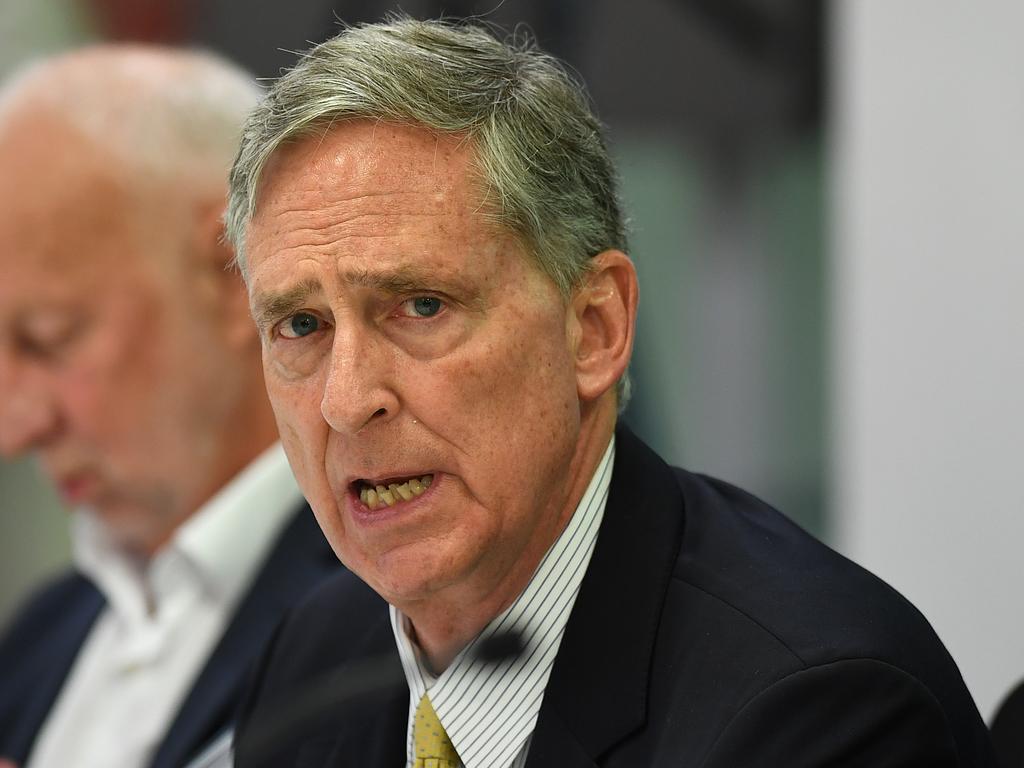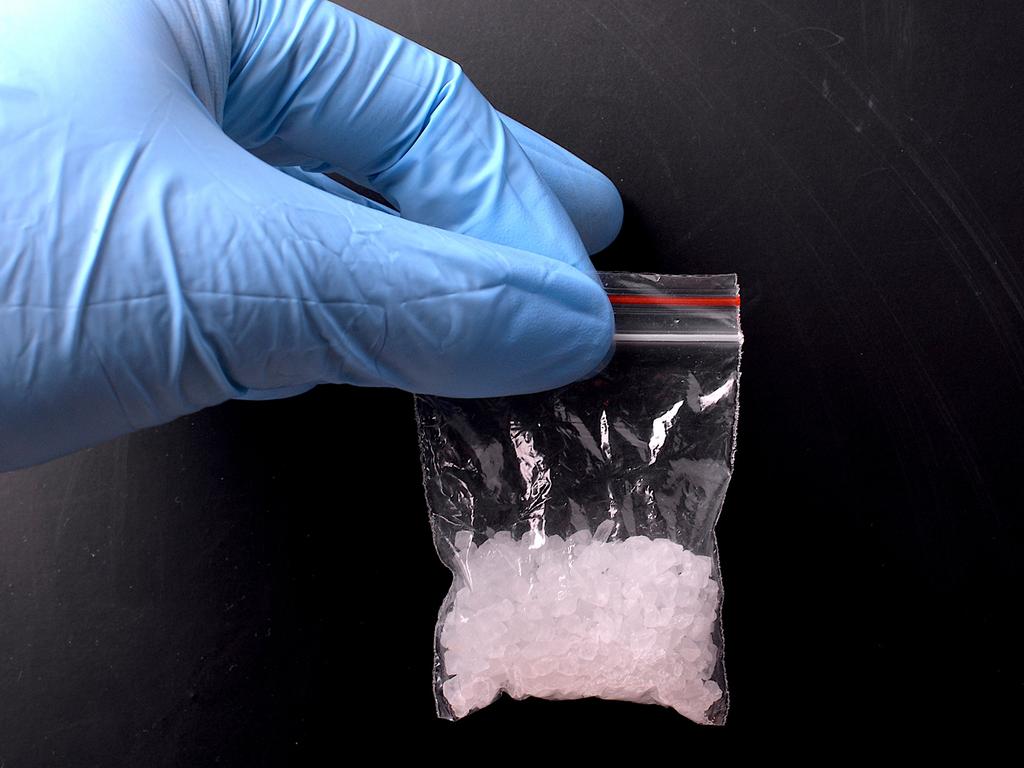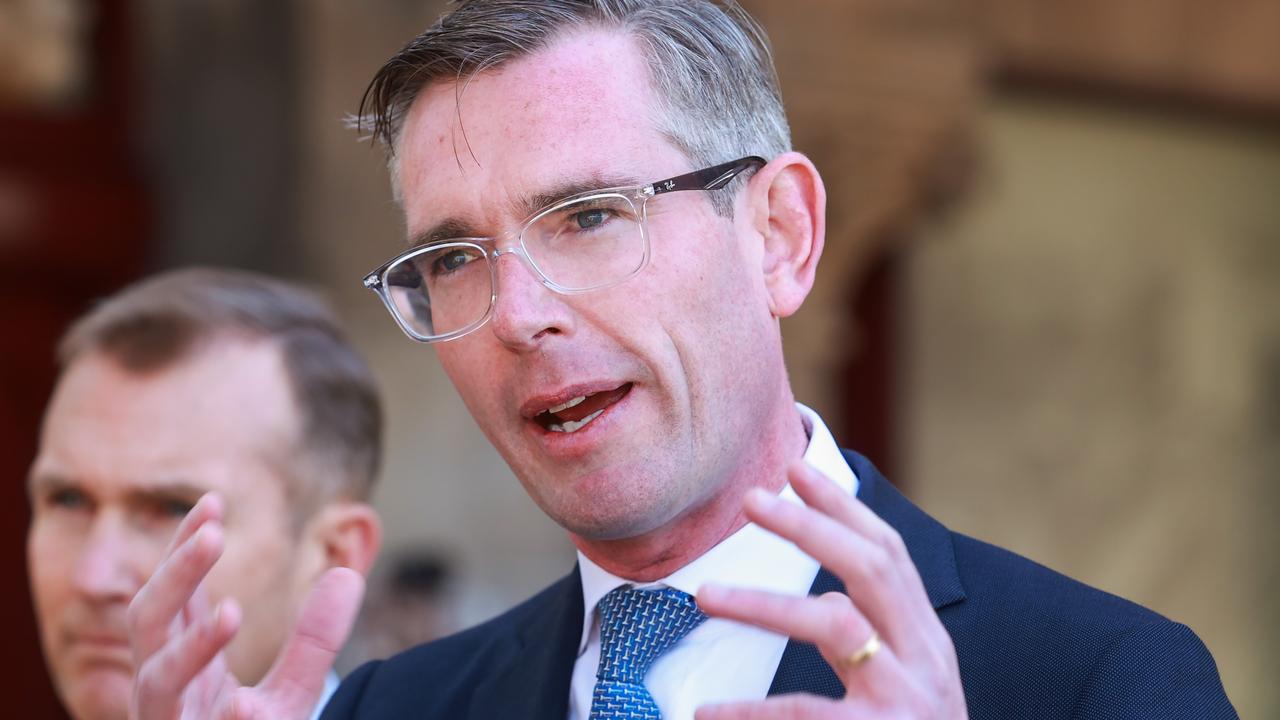Ice inquiry chief asks if govt officials have even read his findings
The stories of NSW’s ice addicts and the “inaction” of the government still haunt the inquiry’s top prosecutor than two years ago— now, he is begging officials to to start implementing the recommendations he made to fix the crisis.
THE former Crown prosecutor who spent 14 months heading the Ice Inquiry has pleaded with the NSW Government to stop “sitting on its hands” and find the “political courage” to act on his recommendations.
Professor Dan Howard questioned whether some NSW Government ministers had even read his report which maps out a “clear way forward” in the fight against ice.
“Why they can’t read and understand that this is coming from a range of deeply well-qualified experts … I think it can only be that they haven’t read it, or don’t care about it, and that would be depressing,” he said.
“Or, they don’t have the courage to grasp the nettle which frankly is a clear way forward.
“Otherwise, it’s a lack of political courage because the evidence is all laid out. This wasn’t some consultancy, this was a proper special commission of inquiry where people gave evidence on oath.”

It’s been 30 months since Prof Howard travelled the state gathering detailed expert evidence from clinicians “in the trenches and on the frontline”, from people with lived experiences and heard harrowing evidence from Indigenous community members.
He made 109 recommendations and said the glaring problem that needed to be addressed urgently was a lack of formal drug policy.
“We need a road map of how we are going to address a problem of this magnitude,” he said. “There is a crying need and this report is a good framework, a place to start.”
The desperate lack of rehabilitation facilities across the state also needed immediate attention. Prof Howard accused the Government of “doling out funds in bits and pieces” to the drug and alcohol sector which he said was starving for funding and had been for many years.

“It’s time they fix this problems instead of letting it fester and get worse and allow more people to die,” he said.
Prof Howard said the Government seemed “afraid” of changing from the “same old hard on drugs law and order approach, whichis so passe, so tired and hasn’t worked for 50 years”.
“Addiction specialists employed by NSW Health had the courage to come forward as public servants and say how outrageous all this is and something just has to be done,” he said.
“They all agree we have to treat this as health and social issue andnot a criminal justice issue.”
While ice addiction permeates “all walks of life” Prof Howard said he was particularly moved by the plight of Indigenous communities.
“I am haunted by not just their pleas for help but also the lack of action by the government,” he said.
Ice inquiry ignored as drug spreads painful path across the state
More than $7 billion worth of ice is being taken a year as use of the drug infiltrates all classes of Australian society.
A Saturday Telegraph investigation reveals the staggering cost of the state’s ice scourge, with crime, deaths and hospital admissions soaring. Despite this, 30 months since the State Government’s much heralded Ice Inquiry, not a single recommended change to policy has occurred.
The highly addictive drug has been linked to hundreds of deaths, more than 11,000 hospital admissions and 23,000 drug possession incidents since just 2019. And despite calls from hundreds of families four years ago for increased resources to tackle the epidemic, the NSW Government is yet to act.
Following the 14-month Special Commission of Inquiry into the Drug Ice, 109 recommendations were handed down that set out a clear way forward to address drug use effectively and minimise harms by treating addiction as a health and social issue.

Five of those were immediately refused by the state government.
Families tell of the heartache of watching a loved one turn into a violent, paranoid, sleep-deprived monster, and the desperation they feel at not being able to help them.
Despite repeated promises, the NSW Government has yet to formally respond to the report. Premier Dominic Perrottet says he is close to releasing a response, but has refused to confirm any concrete timing.
Asked about the delay, a NSW Government said: “The NSW Government’s response to the Ice Inquiry and associated funding remains under active consideration.”
Attorney-General Mark Speakman expressed frustrations about his own government’s delay on a response in appearing before budget estimates this week, saying he had spent “hundreds of hours … trying” to make progress.
Mr Speakman has previously called for a drug diversion scheme that would give police the discretion to issue $400 fines to illicit drug users rather than make an arrest.
Earlier this year the state’s six professors of addiction medicine called for legislation for users caught with small amounts of drugs for personal use to be forced to seek treatment instead of facing court.
The letter from the six experts, who all gave evidence to the Ice Inquiry, said the drug problem was worse since the 2020 release of the report.
Dr Will Tregoning, CEO of Unharm, which advocates for safe, legal drug use, said the state government’s delay was “awful” and drug dependence needed to be treated as a health issue – rather than a criminal issue.
“Being criminalised doesn’t help people, it’s a barrier for people trying to reach out for help” he said.

“Those who are disadvantaged or vulnerable are most likely to be those criminalised.”
Health experts say ice is highly addictive because of its ability to rapidly release a significantly higher amount of dopamine than any other pleasurable activity or psychoactive drug.
The rate of dopamine falls very quickly in withdrawal from methamphetamine, leading to a discomfort that encourages people to use again and again.
New national data showed consumption of ice, cocaine and ecstasy was higher in Australia’s cities than in regional areas for the first time since April 2017 – a year before the inquiry was launched.
Meanwhile, criminal charges related to amphetamines had risen by 10.5 per cent from 2017 to 2021.
Rehabilitation centres are also under immense pressure – with Odyssey House revealing there has been a significant rise in the need for treatment, with the service averaging 500 monthly requests for information, advice or admission, and a massive 18 per cent increase in clients in the 12-months to December 2021.




